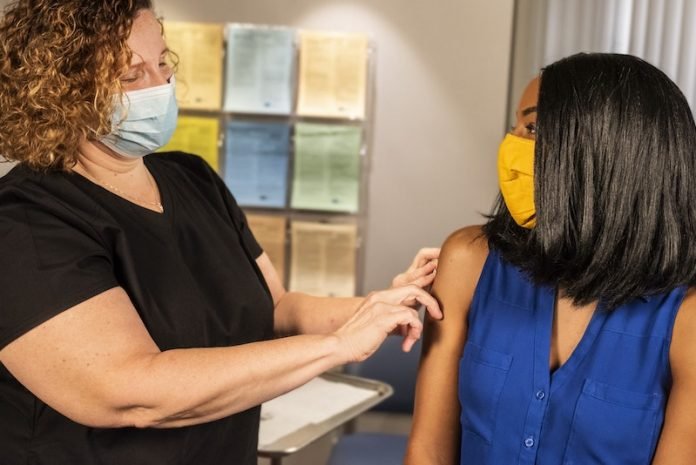
The Omicron variant was detected for the first time in South Africa in November 2021 and has since spread to many countries. It is expected to become the dominant variant within a few weeks or months.
Previous studies show that the Omicron variant is more transmissible than the currently dominant virus (the Delta variant).
It is capable of spreading to individuals who have received two vaccine doses and to previously infected individuals.
In a new study from Pasteur Institute, researchers found that Omicron is much less sensitive to neutralizing antibodies than Delta.
They isolated the Omicron variant of SARS-CoV-2 from a nasal sample of a 32-year-old woman who developed moderate COVID-19 a few days after returning from Egypt.
The team first tested the sensitivity of the Omicron to monoclonal antibodies used in clinical practice to prevent severe forms of the disease, as well as to antibodies in the blood of individuals previously infected with SARS-CoV-2 or vaccinated.
They compared this sensitivity with that of the Delta variant and found that Omicron is much less sensitive to neutralizing antibodies than Delta.
The scientists then analyzed the blood of people who had received two doses of the Pfizer or AstraZeneca vaccine. Five months after vaccination, the antibodies in the blood were no longer capable of neutralizing Omicron.
This loss of efficacy was also observed in individuals who had been infected with SARS-CoV-2 within the past 12 months.
But administering a booster dose of the Pfizer vaccine or a single vaccine dose in previously infected people led to a big increase in antibody levels that were sufficient to neutralize Omicron.
Five to 31 times more antibodies were nevertheless required to neutralize Omicron, compared with Delta, in cell culture assays.
Omicron is therefore much less sensitive to the anti-SARS-CoV-2 antibodies currently used in clinical practice or obtained after two vaccine doses.
The Omicron variant’s biological characteristics are still relatively unknown. It has more than 32 mutations in the spike protein compared with the first SARS-CoV-2 and was designated as a variant of concern by WHO on November 26, 2021.
The scientists concluded that the many mutations in the spike protein of the Omicron variant enabled it to largely evade the immune response.
Ongoing research is being conducted to determine why this variant is more transmissible from one individual to the next and to analyze the long-term effectiveness of a booster dose.
If you care about Covid, please read studies that what happens to our immune systems when we get a booster, and COVID-19 booster shot can help most people with cancer.
For more information about health, please see recent studies about drug that could offer much-needed COVID-19 protection, and results showing that COVID-19 booster shots prompt stronger, longer protection than original shots.
The study is published in Nature. One author of the study is Delphine Planas.
Copyright © 2022 Knowridge Science Report. All rights reserved.



